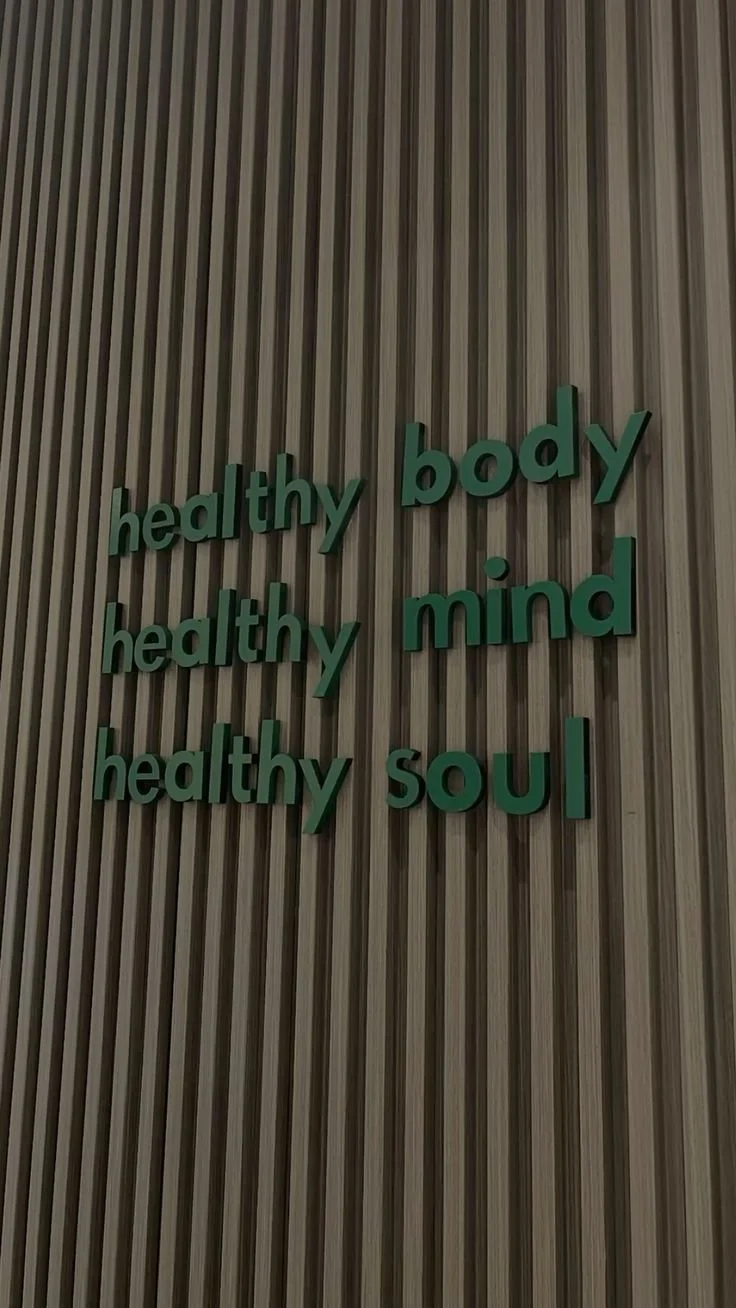How To Reconnect With Your Body When Life Feels Overwhelming
In the whirlwind of modern life, it's incredibly common to feel disconnected from yourself. Whether it's due to lack of sleep, poor nutrition, overstimulation, or simply the weight of endless to-do lists, this sense of disconnection can creep in quietly and settle deeply. You may feel mentally scattered, physically tense, or emotionally drained—without even realizing how you got there.
This kind of fatigue and restlessness can make even the simplest tasks feel overwhelming. Often, we don’t notice how far we’ve drifted from ourselves until we’re already deep in the fog. But the good news is: you can find your way back.
This guide offers gentle, pressure-free ways to reconnect with yourself—starting with small, meaningful actions that restore your sense of presence, ease, and self-awareness.
No. 1
Start With Simple Movement
When you're feeling overwhelmed or disconnected, there's no need to jump into a rigorous workout routine. Instead, focus on gentle movement that reminds you your body is yours and that it deserves care.
A short walk, light stretching in the morning, or a few minutes of deep breathing can make a world of difference. These small actions help release tension and reestablish a connection between your mind and body.
If your muscles feel stiff or achy—like tight hips from sitting too long or neck pain from screen time—it may be a sign that some muscles are overcompensating while others are underused. Movement helps reset these patterns.
For those who find recurring discomfort or tension, working with a professional can be incredibly beneficial. Physical therapy services aren’t just for injuries—they’re also for learning how to move more efficiently, reduce strain, and become more aware of how your body functions. A physical therapist can help you identify overworked areas and guide you toward more balanced movement patterns.
No. 2
Bring Awareness to Everyday Moments
Many people associate mindfulness with sitting cross-legged on a cushion for 30 minutes, but mindfulness is really about paying attention—without judgment—to what’s happening right now.
You can practice mindfulness in the smallest, most ordinary moments.
In the shower, notice the temperature of the water, the sound it makes, and the feel of the floor beneath your feet.
When drinking your morning coffee, focus on the warmth of the cup, the aroma, and the taste.
These small actions of awareness help you anchor yourself in the present. If formal meditation feels like too much, try simply sitting without your phone, listening to the sounds around you, or observing your breath.
These quiet check-ins help you return to yourself, gently and consistently.
No. 3
Rebuild Rest as a Daily Practice
Most people only rest once they’ve completely run out of energy—but rest isn’t something you earn after exhaustion. It’s something you should build into your day, every day.
Start by identifying what drains your energy. Is it constant noise? Multitasking? Emotional labor? Once you know your energy drains, you can begin to protect your reserves.
Rest doesn’t always mean sleep. It can be:
Sitting in your car for five minutes before going inside
Closing your eyes between meetings or calls
Lying on the floor with your legs elevated on a couch or cushion
Practicing slow breathing with one hand on your stomach
These small acts of rest help regulate your nervous system. In fact, rest is like strength training for your stress response—the more you practice it, the more resilient and calm your body becomes over time.
Intelligent Change
Join over 2 Million people starting every day happier with products that elevate daily life.
GET 10% OFF YOUR ORDER
Use code: CRISTINAA10
No. 4
Pay Attention to What You Consume
Wellness isn’t just about what you eat—it’s also about what you consume mentally and emotionally. This includes:
News
Conversations
Background noise
Ask yourself: What leaves you feeling drained? Maybe it’s doom-scrolling through negative news or engaging in conversations that leave you feeling depleted.
You don’t have to delete every app or isolate yourself. Instead, become more intentional about how and when you engage. Choose inputs that uplift and ground you.
Listen to music that soothes you
Read a book before bed instead of scrolling
Follow social media accounts that inspire rather than exhaust
Of course, food and hydration matter too—but not as a source of guilt or restriction. Choose nourishing meals that give you energy and satisfaction. Drink water before your morning coffee or tea. And most importantly, let go of pressure. Your body is already doing so much for you—it deserves kindness, not criticism.
Takeaways
Reconnecting with yourself doesn’t require a massive lifestyle overhaul. It’s not about changing everything all at once—it’s about returning to small, steady habits that gently bring you back to presence.
Move a little each day. Pay attention to what you consume—whether that’s food, media, or conversation. Build rest into your routine before burnout hits.
The more often you check in with yourself, the easier it becomes to stay grounded. And when life inevitably gets busy again, you’ll know exactly how to find your way back to yourself—with grace, gentleness, and intention.
Start small. Start now. And trust that every mindful moment brings you closer to home.
Looking for Wellness resources?
Are you looking to enhance your wellness routine? Explore our wellness partners who offer a wide range of resources to support your journey toward holistic living and well-being.































